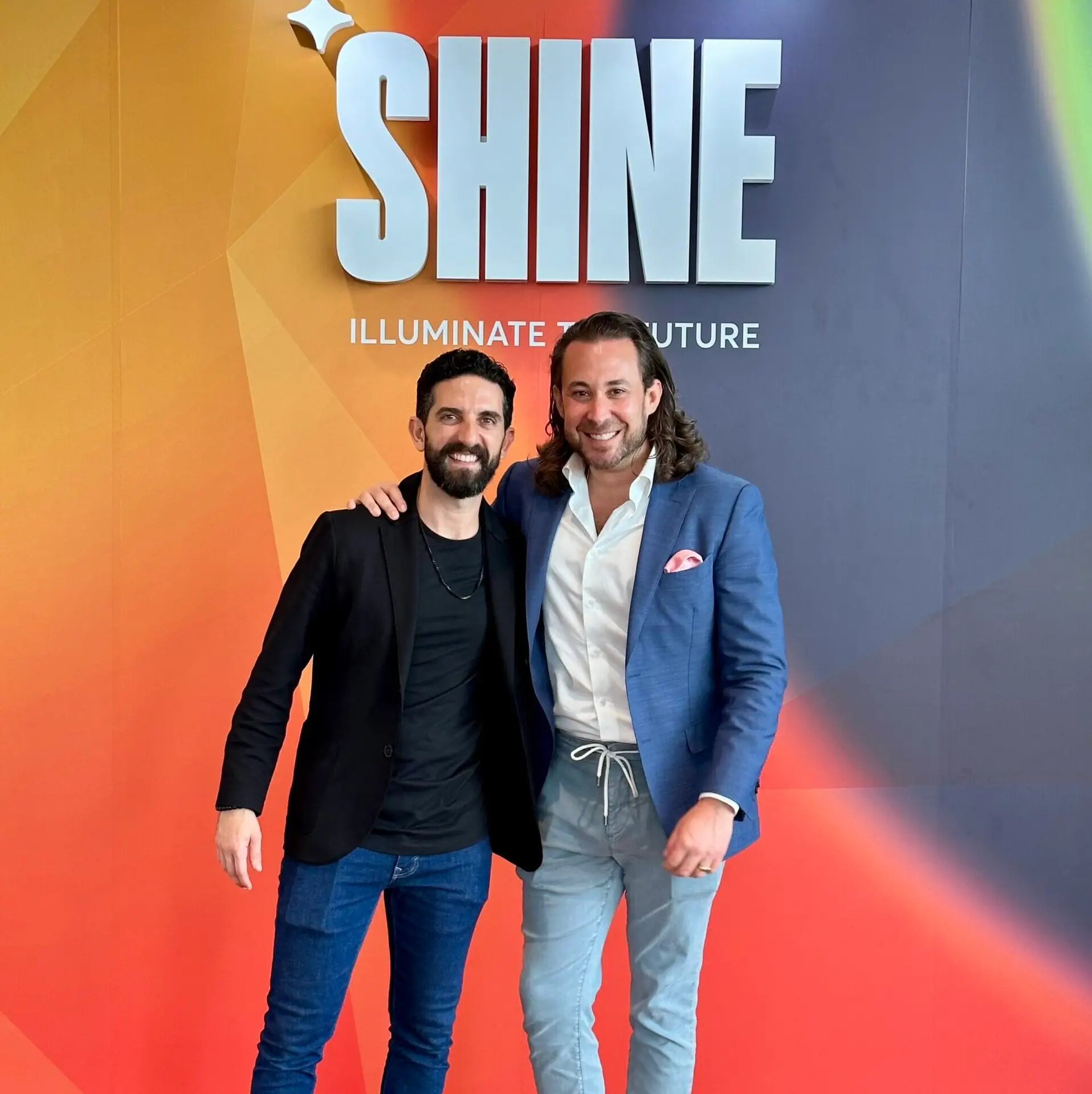“We always recommend that people do not memorize their presentations verbatim. That results in just acting a little bit too robotic. Your audience can tell, and that’s just not the best way to go.” – Eric Silverberg
This week, Grant sat down with Eli and Eric, some of our friends from Speaker Labs (not to be confused with The Speaker Lab). Eli and Eric help speakers master the four pillars of becoming a world class speaker — content, delivery, visuals, and mindset — so that they can become exceptional communicators.
“When you share your idea, even if it’s a known idea in the world, but you share it your way through your stories, your experiences, your unique creative analogies and metaphors, and interesting ways to package that idea, the audience may not have heard it your way, and that allows you to feel confident, to show up and say, I may tell you something you already know, but I’m certainly going to tell it to you in a way that you haven’t heard it before, because I’m telling it to you my unique way.” – Eli Gladstone
In this episode we cover:
- 05:12 How Eli and Eric built this business
- 06:21 What Speaker Labs does
- 10:28 The difference in good and great speakers
- 15:02 What makes a great presentation
- 18:41 How to improve confidence as a speaker
- 21:53 Understanding the E’s of engagement
- 23:52 How to read the audience and develop a knack for making last minute tweaks
- 26:59 Let’s talk about visual aids
- 28:51 How to think about slides + some tips and tricks
- 34:06 The importance of mindset in public speaking
- 38:05 How to confront and overcome fears
- 39:11 Tips to overcome impostor syndrome as a speaker
- 42:32 The most important question to ask yourself about your message
“Eli came up with an amazing analogy once that has to do with the GPS systems. You know, when you’re in your car and you’re using waze or Google Maps or whatever, and then there’s a voice that speaks to you, and they tell you what to do. They tell you, in 400, you know, or in 4 miles, turn left, and in 3 miles, turn right. But here’s what the GPS doesn’t do. The GPS does not say, turn left, go straight, go straight, go straight, go straight, go straight, go straight, go straight, go straight, go straight, turn right, go straight, go straight, go straight, go straight. That’s way too much, right?” – Eric Silverberg
“I try to get them to think about playing with the levels of altitude of that idea. You may not change your message, this is your message. But once you understand the most abstracted version of that idea, you now understand the language that could speak to the most people.” – Eli Gladstone


